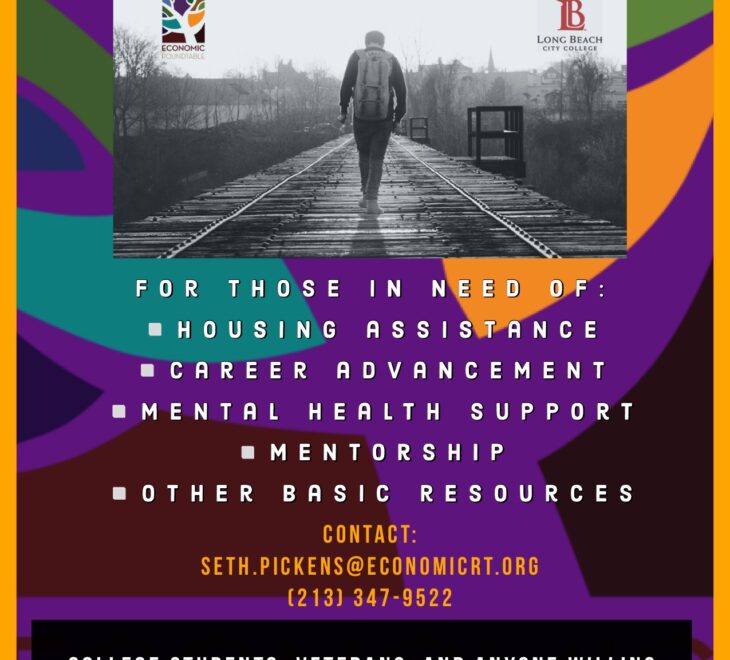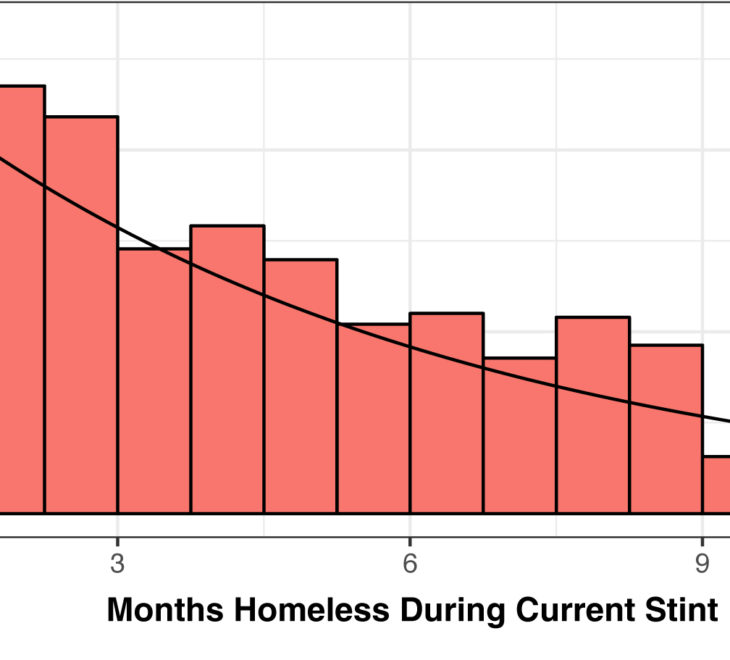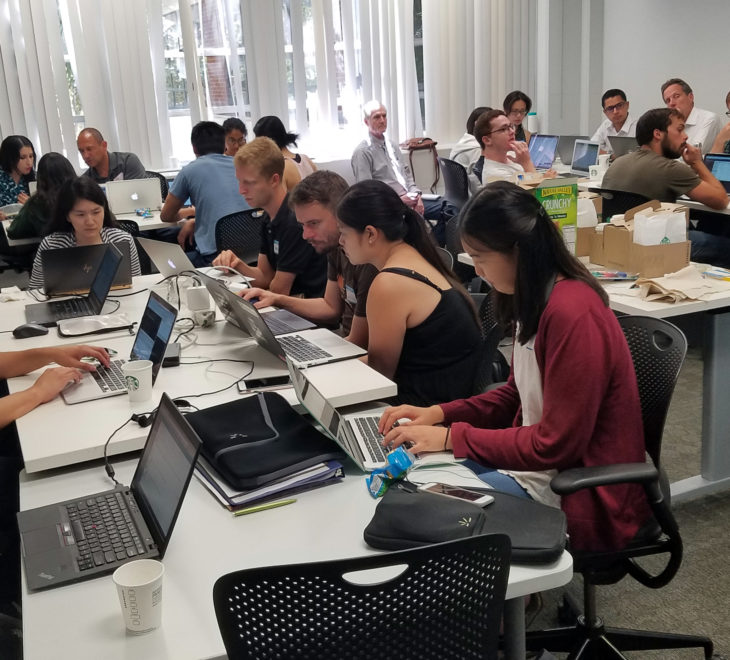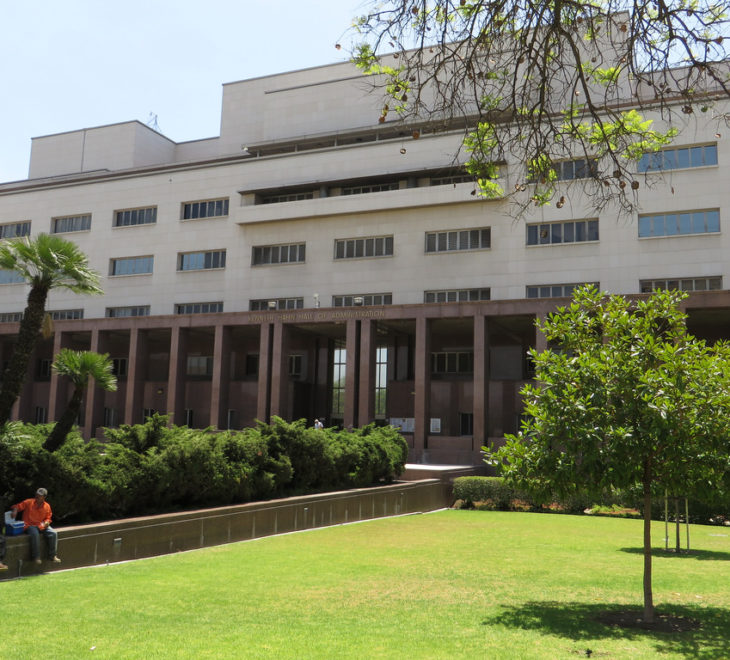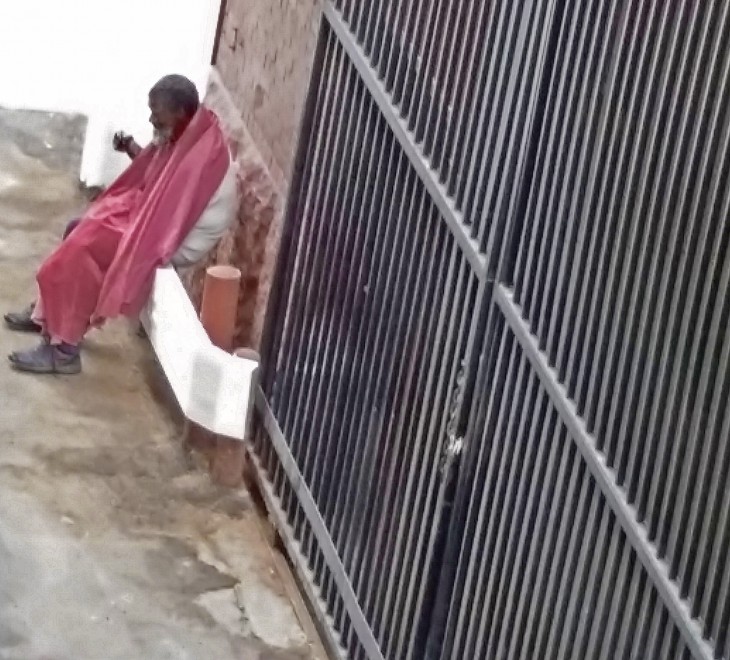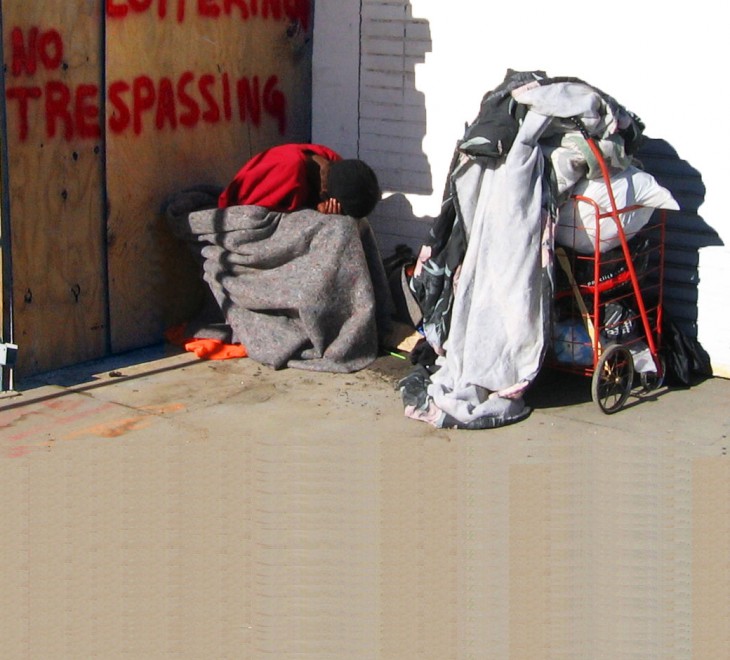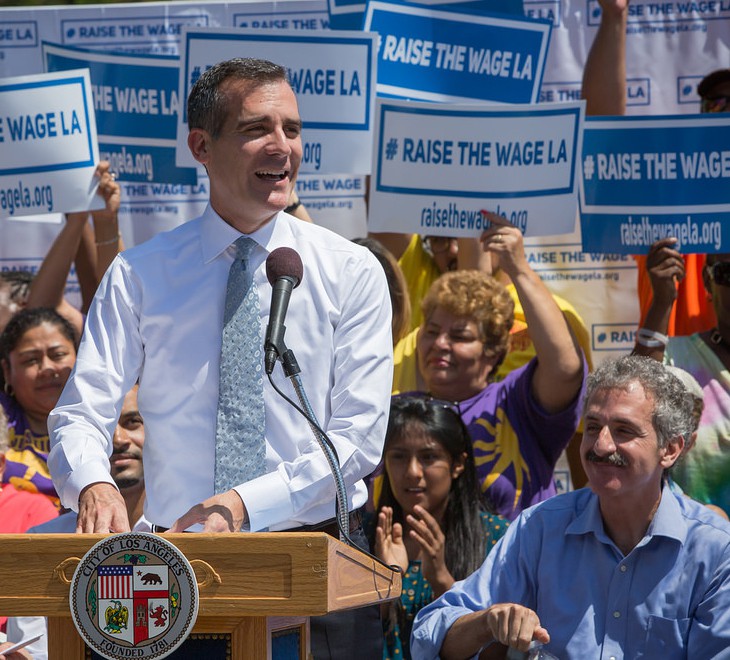Reflections From Economic Roundtable’s 25th Anniversary Symposium
By: Economic Roundtable Staff
Since the November 2016 election, pundits, activists, and others have wondered: What just happened and what’s the most effective thing we can do? Some of us may have lost sleep or gotten angry. Others have felt despair over living in such a divided nation. We too have grappled with how our work can have integrity and contribute something valuable. It was in this reflective mood that we hosted our 25th Anniversary Symposium.
With the passage of a $15/hour minimum wage with enforcement provisions, and two affordable housing ballot measures (Measures HHH and JJJ), Los Angeles politicians and voters have moved in the direction of a more equitable city where more residents can progress economically. We have opportunities to build on local momentum despite challenges at the federal level. Our dilemma is that Los Angeles sees problems that are more complex and solutions that are more inclusive than non-urban parts of the country.
We were fortunate to have some of our city’s brightest and most talented thought leaders, ranging from housing and homelessness, to labor, economics, and political analysis. Here are a few of the highlights:
Post-Election Landscape:
The recently published Nancy Cohen opened up our first panel with post-election reflections on what progressives should learn from the election. Veronica Carrizales, of California Calls, spoke about how younger voters of color changed California and other Southwestern states’ election outcomes. Rusty Hicks, of the Los Angeles County Federation of Labor, who co-led the charge to pass Measure JJJ reflected on how L.A. voters have continued to seek a more economically stable and prosperous city, with jobs, housing, and transit. Arturo Carmona of We are Mitú (and also formerly of the Bernie Sanders campaign) shared his insights from the 2016 presidential campaign trail about the need to build class-based identity on the left and connect with working class European Americans, while affirming needed conversations on race and identity. Danny Feingold of the progressive labor blog, Capital and Main discussed the need for changing the corporate media landscape, which provided a public disservice in how it framed the election.
Housing:
Bill Pitkin of the Conrad Hilton Foundation, a leading funder in understanding and fighting to end homelessness, moderated the housing panel. Other panelists included ERt board member and UCLA Professor Joan Ling, who spoke about the need for inclusionary zoning and zoning codes that incentivize denser housing that is affordable, not just for the top 10 percent, because it would take a whopping $100 billion that we don’t have to build our way out of L.A.’s housing crisis!
Dan Flaming, from the Economic Roundtable, emphasized that we cannot build our way out of homelessness. There simply is not enough money. In addition to investing in housing, we need to be more effective at preventing homelessness and helping people find quick escapes from homelessness, particularly with employment. Chris Ko, of the United Way of Greater Los Angeles, showed that the face of the homeless population has shifted towards more youth and families, not just chronically homeless folks. This is the result of greater economic inequality in Los Angeles, and the U.S. at large. Gale Holland, an LA Times reporter, described the human dimension of homelessness from her interviews with homeless individuals. She emphasized that we need to demonstrate near-term results in addressing homelessness by providing public bathrooms and showers.
Economic Justice and Labor:
The final panel of the day was moderated by Roxana Tynan, of the Los Angeles Alliance for a New Economy (LAANE). Roxana spoke about the need to intentionally center racial justice in the messaging and work of the labor movement. Labor Commissioner Julie Su discussed her enforcement work at the California Department of Industrial Relations, and how her leadership has helped transform a state bureaucracy into an enforcement powerhouse. She detailed how this was possible through using enforcement resources strategically, protecting workers against retaliation and developing community partnerships. Alberto Retana of Community Coalition emphasized the need to make more jobs available, especially in communities like South LA that have not been able to be a part of the formal economy, due to immigration or incarceration issues. Patrick Burns, from the Economic Roundtable, said we need to document the positive impacts of the higher minimum wage on the local economy. Future advocacy and research should highlight informal workers who are left out of wage increases. ERt board member and UCLA Institute of Research on Labor and Employment (IRLE) Director, Abel Valenzuela, brought up the need for stable, predictable work schedules for low wage workers as well as the need to address the growing gig economy.
Supervisor Ridley-Thomas presented ERt with a congratulatory scroll from the County Board of Supervisors and urged symposium participants to actively support the County’s homelessness sales tax measure that will be on the ballot in March 2017.
Our keynote speaker was Supervisor Sheila Kuehl. She gave a riveting speech drawing on her experiences working on women’s and LGBT issues in more conservative times to describe opportunities for progressives to keep our integrity intact, have courage, be smart, and make meaningful change while rejecting unjust laws.
Especially after this symposium, we have hope that the next four years will birth some of the most innovative campaigns we’ve seen to expand the economy and provide opportunities for the most marginalized Angelenos.


